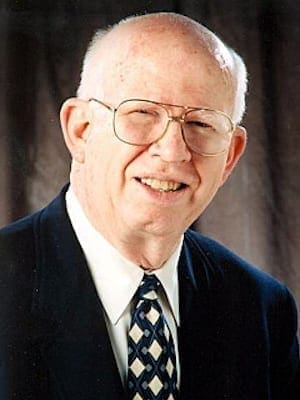One of my birthday presents this year was accompanied by a great compliment.
My son gave me Jimmy Carter’s new book, “Faith: A Journey for All,” and said, “Dad, this sounds like you.”
It was an over-the-top compliment, but I sincerely hope that it is true.
There is not much that surprises in this new volume, but it does remind me of the Baptist faith that surrounded me in my formative years.
Yes, segregation was in full flower, but, even then, it was beginning to fray at the edges.
My parents were products of their time and place, but to their everlasting credit, they never taught my sister and me to hate. They knew that we would not live in the same world that they had experienced.
The message of love for all people was preached from the pulpit every Sunday, just not practiced toward the local African-American population. One of the great ironies was that we took our offering to support missions for those living in Africa.
Carter touches on all of the hot-button issues, especially the struggles within the Southern Baptist Convention that moved this great body from a position where the Bible was the only creed to a hard-and-fast creedal denomination.
The before-unassailable belief in soul competence of the individual was trampled along with the time-honored independence of the local congregation.
Carter says that three words describe this type of fundamentalism: pride, domination and exclusion.
He contrasts these views with the teachings of Jesus: humility, servanthood of leaders and breaking down barriers between people.
The most important statement in the book is, “Christians should be known by our love and our laughter.”
Carter’s love for every human being and the planet shines through loud and clear.
Considering the current arguments against social justice, Carter comes down solidly on the side of social justice with our obligations to the poor and disenfranchised at the forefront.
The press often wondered how such a spirit like Jimmy Carter’s could emerge from what most considered a dark, provincial, unsophisticated background.
If one grew up in the same Southern Baptist churches at the time that Carter and I did, it is not a mystery.
The gospel lessons were presented in such a way that they took hold in a receptive soul.
There was no doubt in my young mind that God loves every human being. The problem was reconciling the teachings with the practices I saw around me.
Jimmy Carter had the great influence of his mother and her social involvement as a model.
In addition to his mother, he was greatly influenced by the theological writings of Karl Barth, William Sloane Coffin, Dietrich Bonhoeffer, Abraham Joshua Herschel, Reinhold Niebuhr and Paul Tillich.
He also gives great credit for his way of thinking to Millard and Linda Fuller, Dr. Bill Foege and Admiral Hyman Rickover.
One name on his list of influencers that surprises me is that of his brother, Billy. He pays great tribute to him.
Carter has taught Sunday School classes for most of his adult life. He has written extensively about his faith and has practiced his humanity before the entire world.
In this book, he states his basic philosophy very succinctly, “My general attitude toward life is that of thanksgiving and joy, not anxiety or fear. In my weekly Bible lessons at our church, I teach that our Creator God is available at any moment to any of us for guidance, solace, forgiveness or to meet other personal needs.”
He also emphasizes the importance of prayer in his life. At 93 years old, Jimmy Carter states, “Faith is not just a noun, but a verb.”
I cannot recommend this book too highly. Reading it and reflecting on its contents constitute pure joy.
A member of First Baptist Church of Charleston, South Carolina, he was the author of “Our Father: Discovering Family.” Mitch’s writings can be found at MitchCarnell.com.

